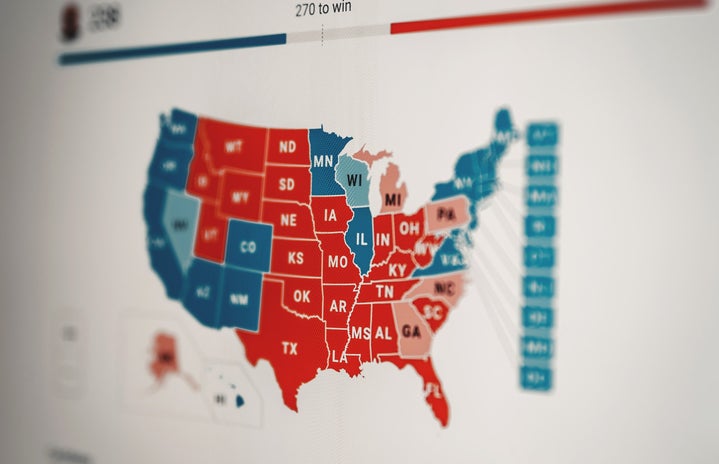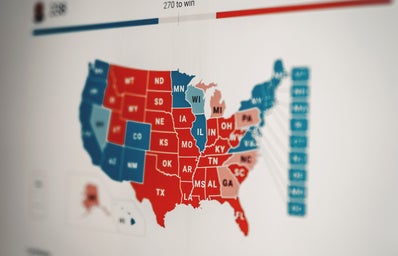By the time most people read this, the United States President-elect will have been determined. For the past four years, many wondered if President Biden would run for re-election or if he would endorse another Democratic candidate in his place. Even though it took multiple days to finalize the election, Biden narrowly received the electoral vote in certain states in 2020, winning key battleground states like Georgia with a margin of less than 1%, securing the presidency. Similar to his previous years in government, he behaved as a true moderate, avoiding inflammatory language and attempting to cater towards both political aisles by pushing for a billionaire tax but still further tightening the border. Due to this, he played a precarious role within American politics, never getting even or strong support from any one side.
However, his support from the American people fell even further with national inflation and the American response to Oct. 7. Even though the economy is influenced by a variety of factors and can’t be pinpointed to a single reason, Biden’s response to Oct. 7 guaranteed he lost the support of a population that helped him win a key battleground state. Biden’s continued attempt to play the middle man between Israel and Palestine has led many Arab Americans — especially in the key battleground state of Michigan — to withdraw their support, something that is also continuing to affect Harris.
Even though Trump has shown anti-Muslim sentiments with Executive Order 13769, which banned immigrants from countries of high Muslim populations, a order he hopes to bring back, Harris’s inability to separate herself from Israel may be her downfall. Now, many Arab Americans are exploring other options such as voting for Trump or even a third party candidate.
While Arab Americans voting for Trump because of the conflict in the Middle East is an interesting turn of events due to Trump’s rhetoric on the region, as well as his implication that he would help Netanyahu “finish the job”, the push for the third party vote is concerning for different reasons. The US Presidential Election operates based on the electoral college. In simple terms, each citizen will cast their vote, and based on the outcome, a separate group of electors will cast their vote for a specific candidate. In total, 538 electoral votes are at stake and the first candidate to reach 270 will secure their spot in the Oval Office. The states are allocated electors based on state populations, meaning that more populated states such as California and Texas will get more electoral votes than smaller states such as Delaware or Alaska. Thus, even if one candidate is able to win the popular vote, or the votes cast by the citizens, if they don’t win enough of the electoral votes, they will not gain the presidency. While it does not happen frequently, it has happened twice in the past twenty years, in 2000 and 2016. While 2000 was a special instance, due to the Supreme Court case, the Green Party played a role in the election outcome in both years. In 2000, Ralph Nader ran as part of the Green Party and pulled almost 3 million votes while Jill Stein of the Green Party ran in 2016 and pulled almost 3 million votes.
Although everyone has the right to vote as they wish, they must remember the system in which they are voting. Due to the two party system and the electoral college, it is almost impossible for a third party candidate to win. In the current electoral college, there are 7 key states that will determine the outcome of the election and in those states, every vote counts. Due to the lack of major support for third parties, they will never be able to win within those battleground states. Therefore, when progressives, who typically align with Democrats more, or Libertarians, who typically align with Republicans more, vote for their third party, they are decreasing the votes for the two major parties.
While it is possible to create lower level change for third party candidates, it is dangerous to vote for a third party candidate, especially one who has lost multiple times, in an election of such scale. Voting third party is a privilege that is often granted to members of solidly blue or red states, as it is less likely that losing a percentage of votes will be enough for a candidate to lose that particular state. While many groups have shown their dissatisfaction with the way Democrats have handled certain issues, and have every right to take a stand, they must also understand the risk of doing so when they are in a state that may determine the outcome of the election.



